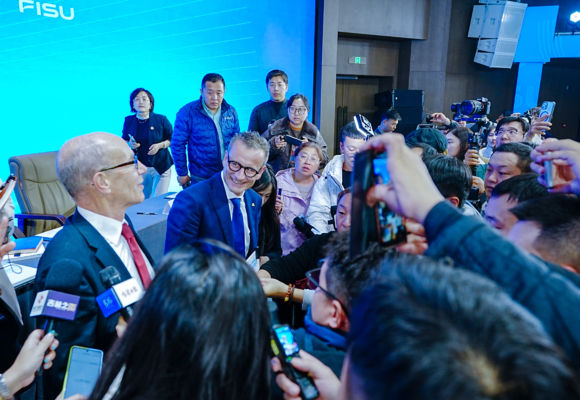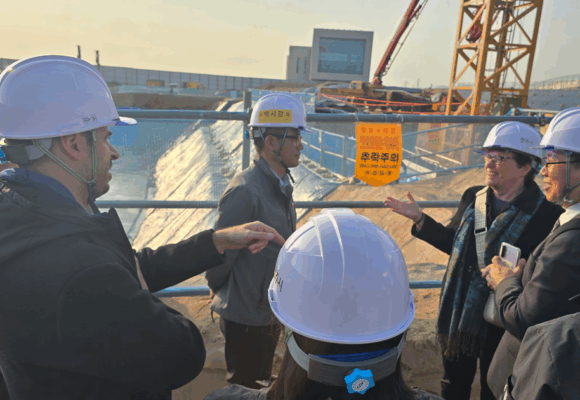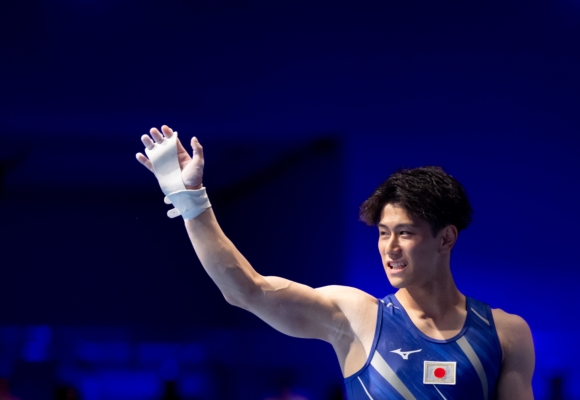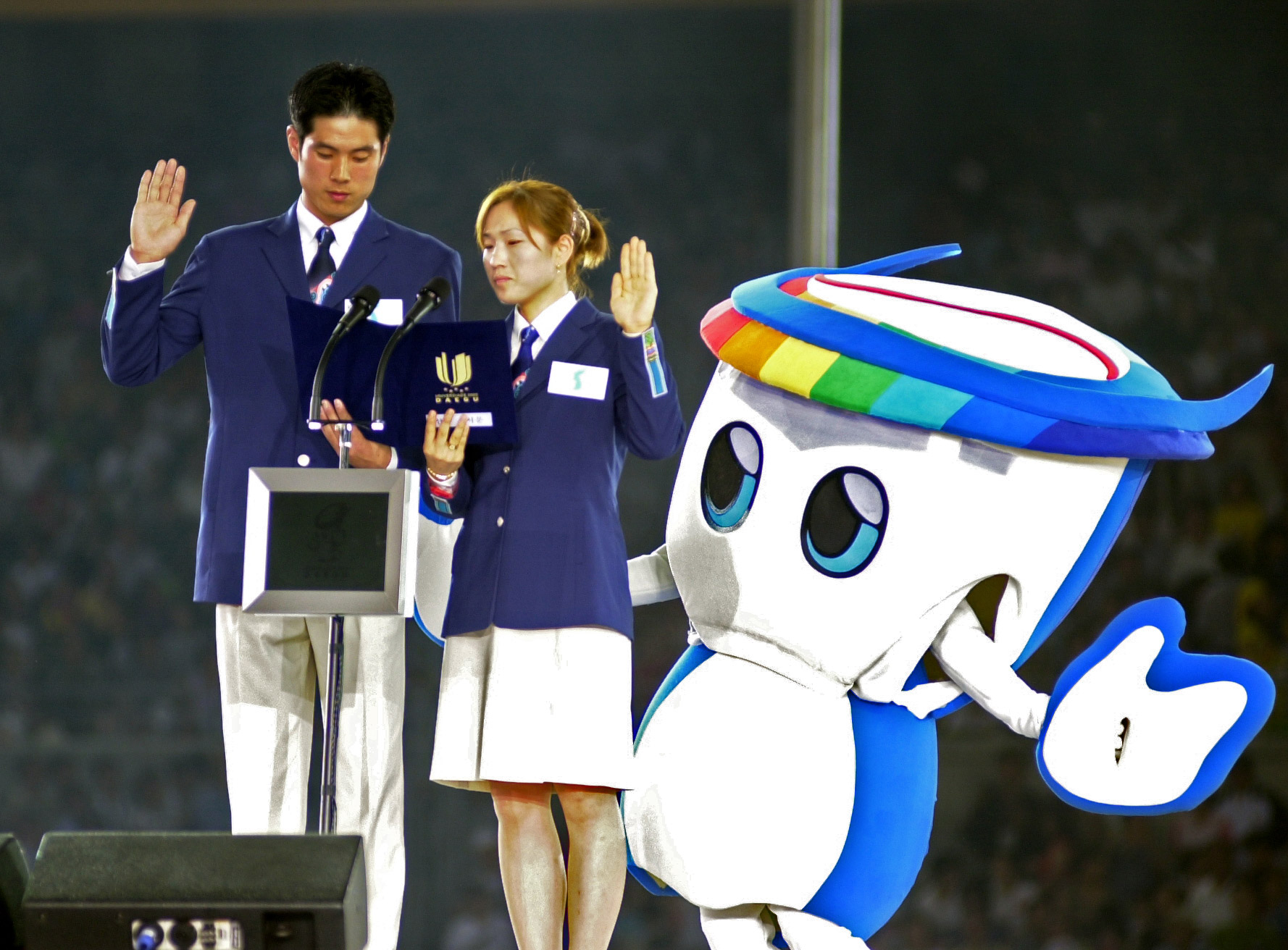 A unified Korea take the FISU Oath during the opening ceremony of the Daegu 2003 Summer Universiade. On behalf of all the student athletes, they promised to compete in the true spirit of sportsmanship and fair-play.
A unified Korea take the FISU Oath during the opening ceremony of the Daegu 2003 Summer Universiade. On behalf of all the student athletes, they promised to compete in the true spirit of sportsmanship and fair-play.
TOKYO – When FISU President Oleg Matytsin met with IOC President Thomas Bach in early November, sporting cooperation between the Republic of Korea and the Democratic People’s Republic of Korea was high on the agenda.
And for good reason: both FISU and the Olympics have been instrumental in assisting unification efforts between the two nations.
When the Summer Universiade came to the South Korean host city of Daegu in 2003, it did so under the event slogan, “A dream for unity.” As North and South Korea walked into the opening ceremonies together under the Korean Unification Flag, sport set the stage for something magical to happen.
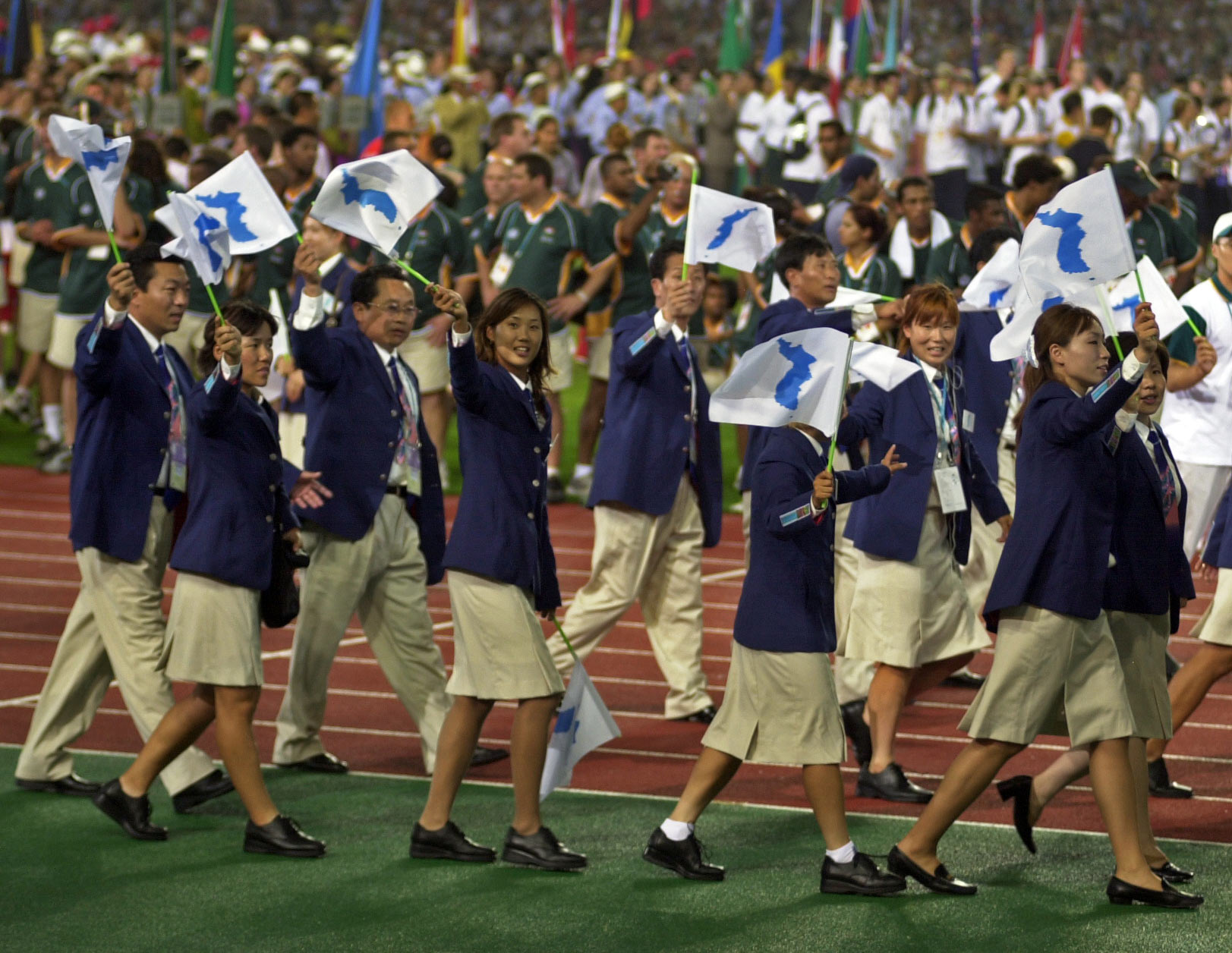 During the Daegu 2003 Summer Universiade, all Korean student-athletes walked into the opening ceremonies waving the blue-and-white symbol of unification of the Korean peninsula
During the Daegu 2003 Summer Universiade, all Korean student-athletes walked into the opening ceremonies waving the blue-and-white symbol of unification of the Korean peninsula
As re-unified student-athletes waved the blue and white symbol of hope in the region, a standing ovation 68,000 strong set the stage for what the Daegu 2003 organising committee President, Cho Hae-Nyoung would say next: “This event will help us achieve our dream of unity; university students from both Koreas meeting each other in Daegu, symbolising our determination to become a single nation.”
The Olympic Games have also seen the two teams parade under a flag of unification. During the Olympic Winter Games PyeongChang 2018, this principle took a significant step further with the participation of a unified women’s ice hockey team. Senior representatives of both countries have now raised the prospect of a joint bid to host the 2032 Olympic Games.
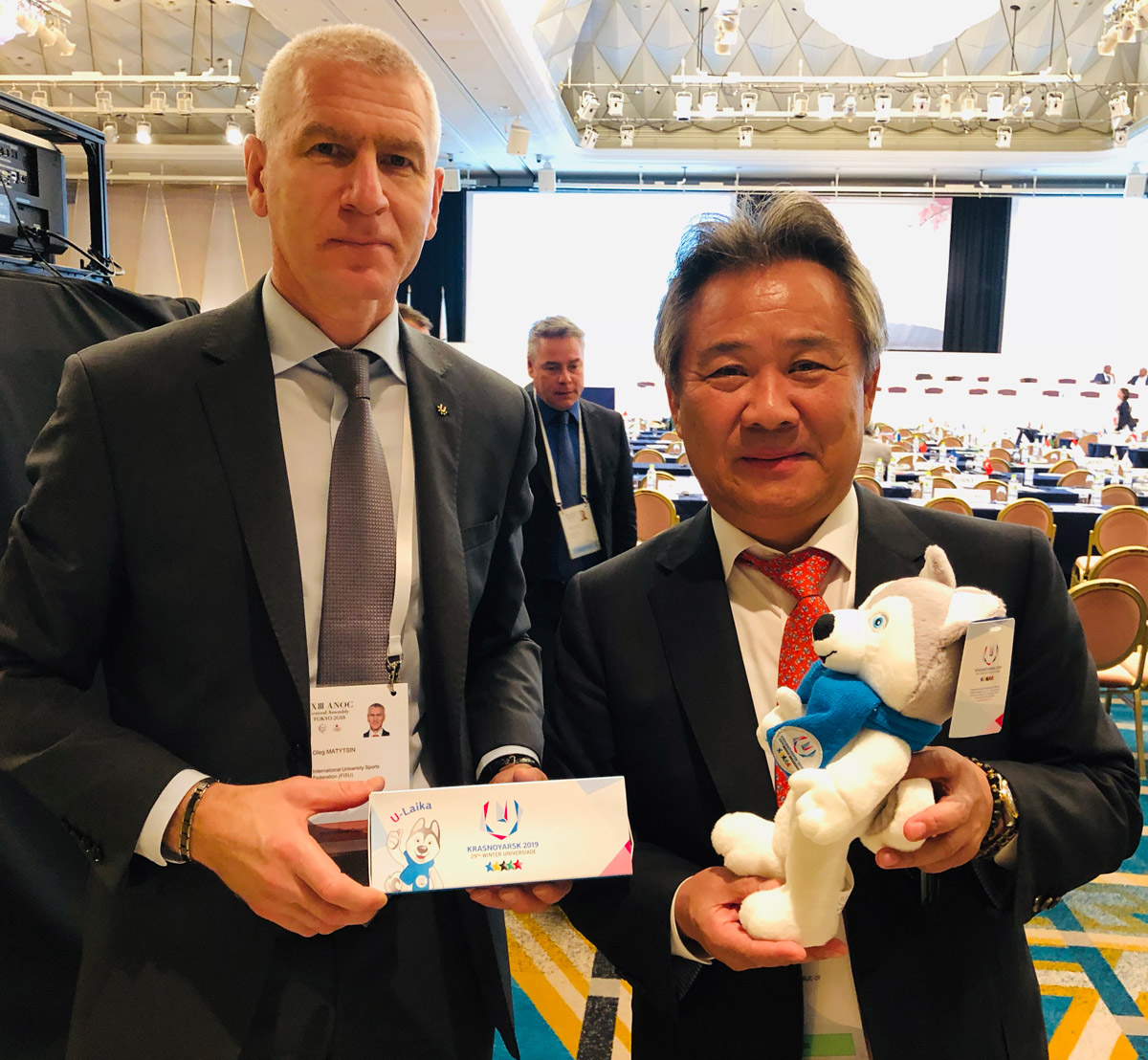 FISU President Matytsin with Korean Sport and Olympic Committee President Kee Heung LEE
FISU President Matytsin with Korean Sport and Olympic Committee President Kee Heung LEE
While the unification of the two nations remains in progress, the University Sport and Olympic Movement remain steadfast partners in bringing the Korean Peninsula together as one, both on and off the field of play.
With the IOC’s encouragement, President Matytsin met with the presidents of the two respective national Olympic committees on the occasion of last week’s Association of National Olympic Committees congress in Tokyo. A further joint parade is planned for the Korean teams when the Games arrive there in 2020.
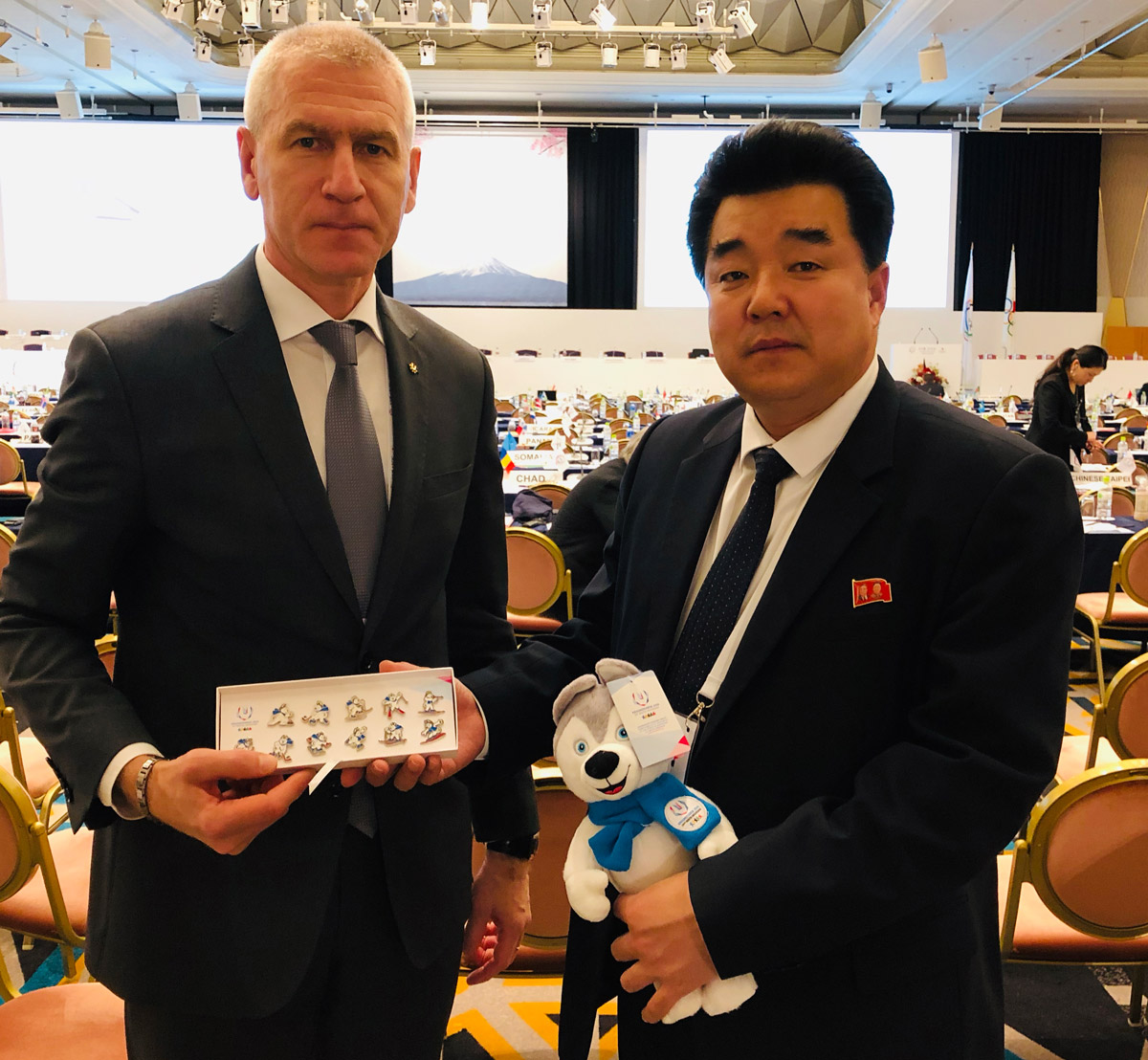 FISU President Matytsin with DPRK NOC President, Kim Il-guk, who is also the country’s Sports Minister
FISU President Matytsin with DPRK NOC President, Kim Il-guk, who is also the country’s Sports Minister
Amid this atmosphere of sporting unity and fellowship, the FISU President encouraged both sides to extend their cooperation to university sports events.
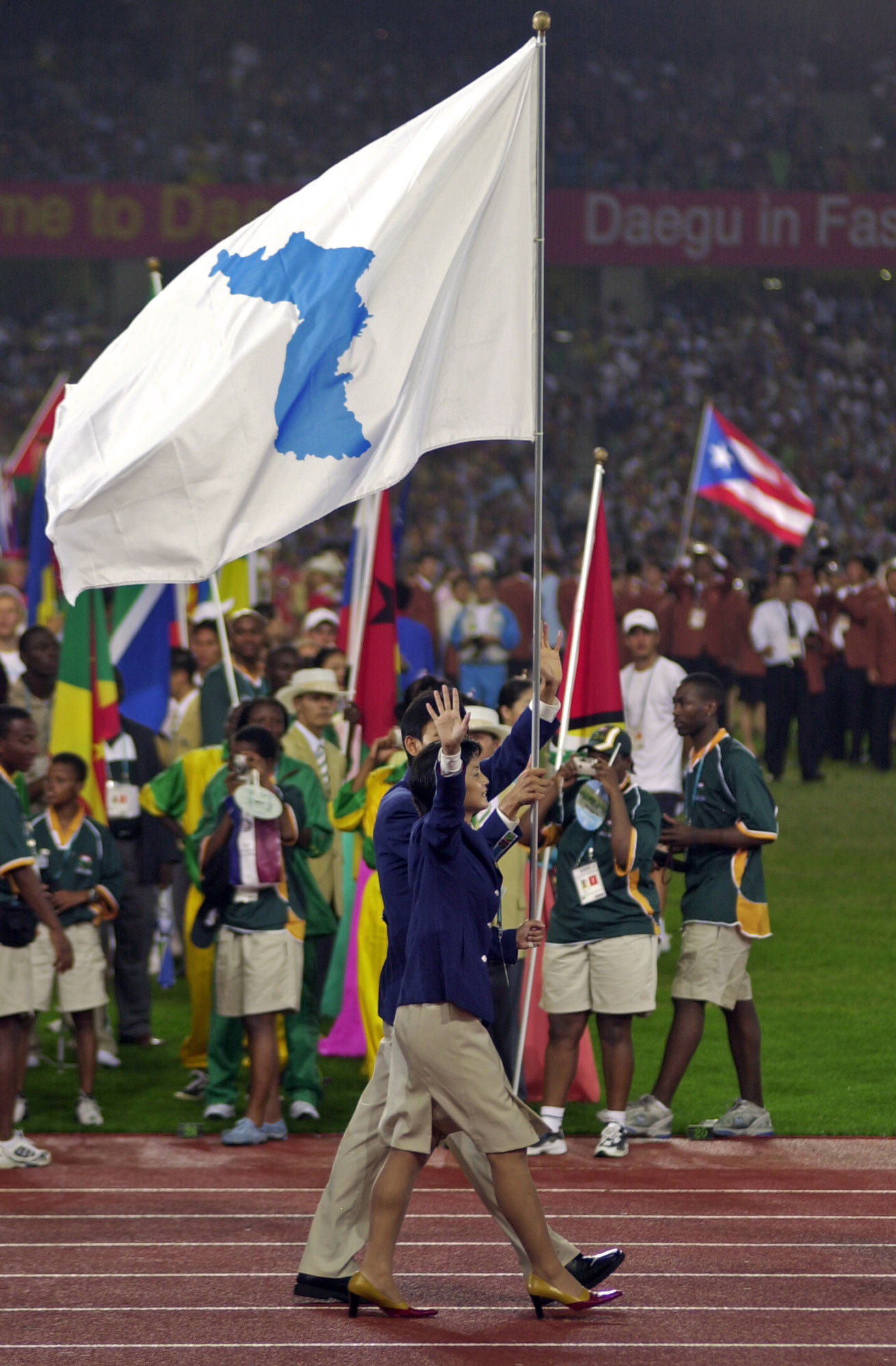 Passion for university sport is clearly high throughout the Korean peninsula, with the Gwangju 2015 Summer Universiade also ranking among the most successful of FISU’s events.
Passion for university sport is clearly high throughout the Korean peninsula, with the Gwangju 2015 Summer Universiade also ranking among the most successful of FISU’s events.
“I know of no other activity that has the same potential as sport to bring together different parties in an atmosphere of mutual respect and even peace,” said President Matytsin. “FISU is committed to realising this potential to the fullest, which means making bold but also sensitive efforts to encourage parties who may be experiencing political conflict to set aside their differences for a moment, on and around the field of play.”
“University sport is established on the Korean peninsula, both to the North and to the South of the Demilitarised Zone. FISU will do all it can to ensure that a hand of sporting friendship is extended across the barriers between the two Koreas, as with any other barriers around the world.”
In the first instance, FISU has encouraged both the Democratic People’s Republic of Korea and the Republic of Korea to walk into the Summer Universiade together again in Napoli, by parading under a unified flag at the opening ceremony.
When it comes to deeper cooperation, FISU will provide every encouragement, noting that the Universiade has already served as a pathfinder to successful Olympic hosting places where some may initially have had reservations: notably with the success of Beijing 2001.
